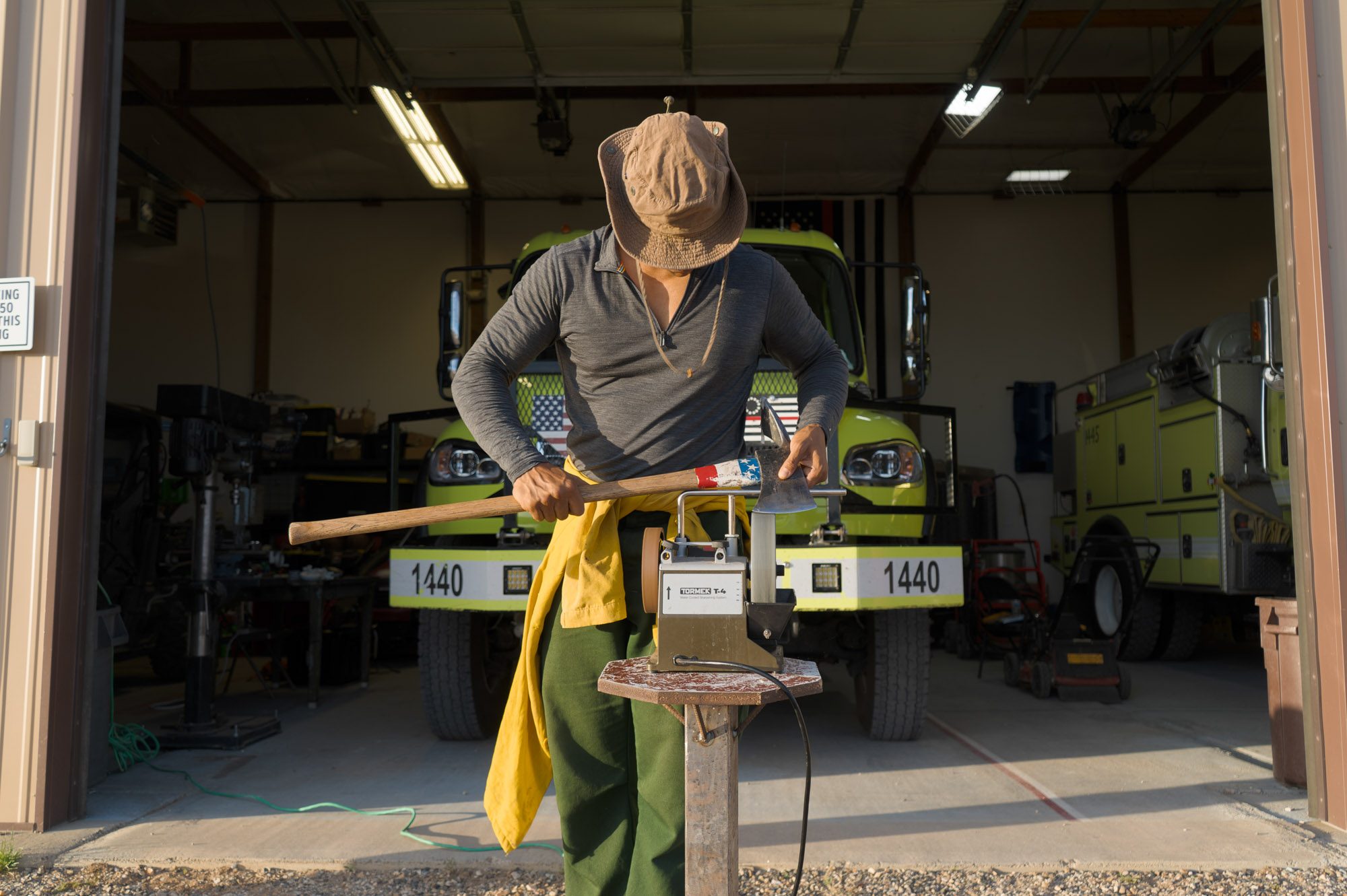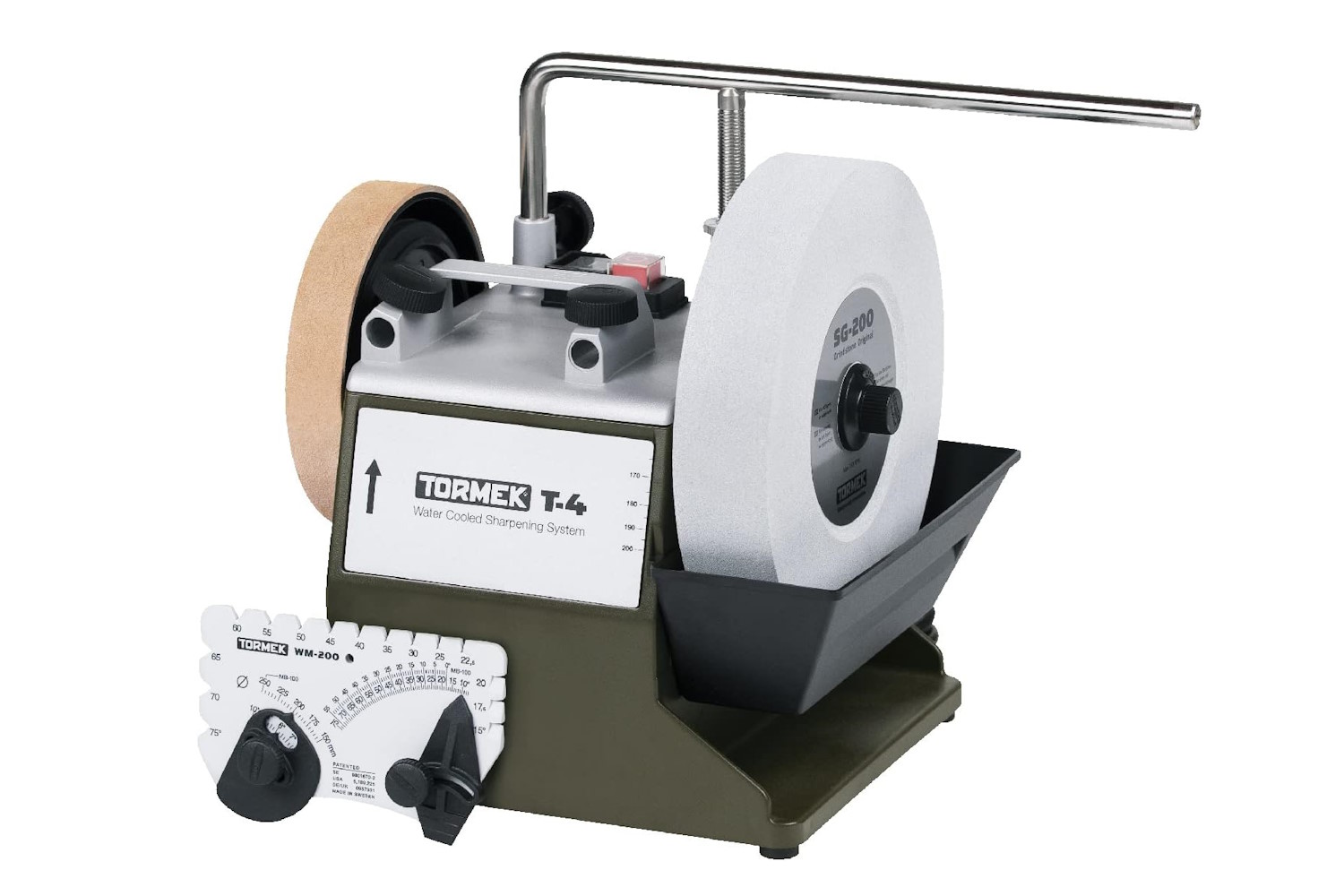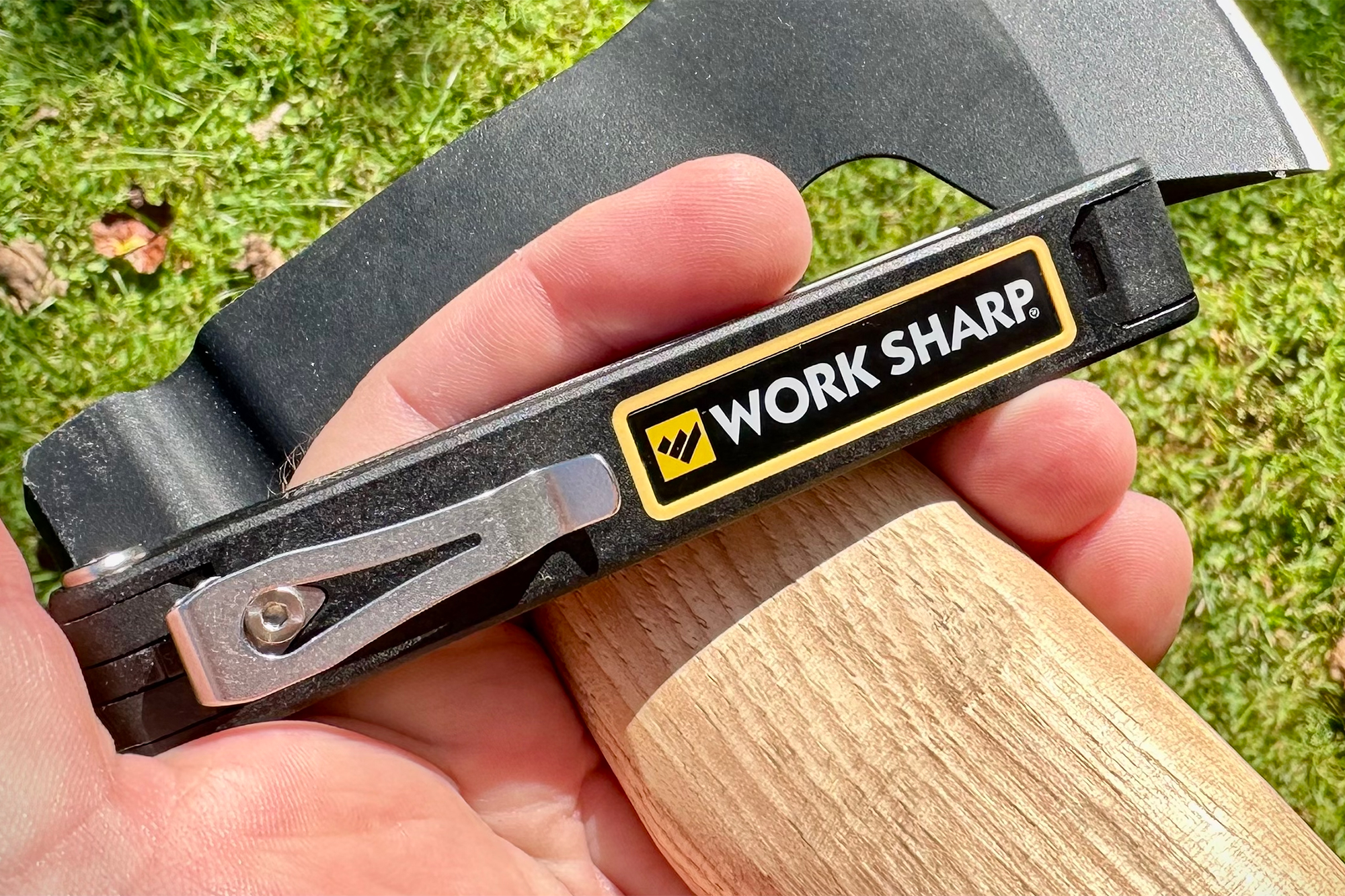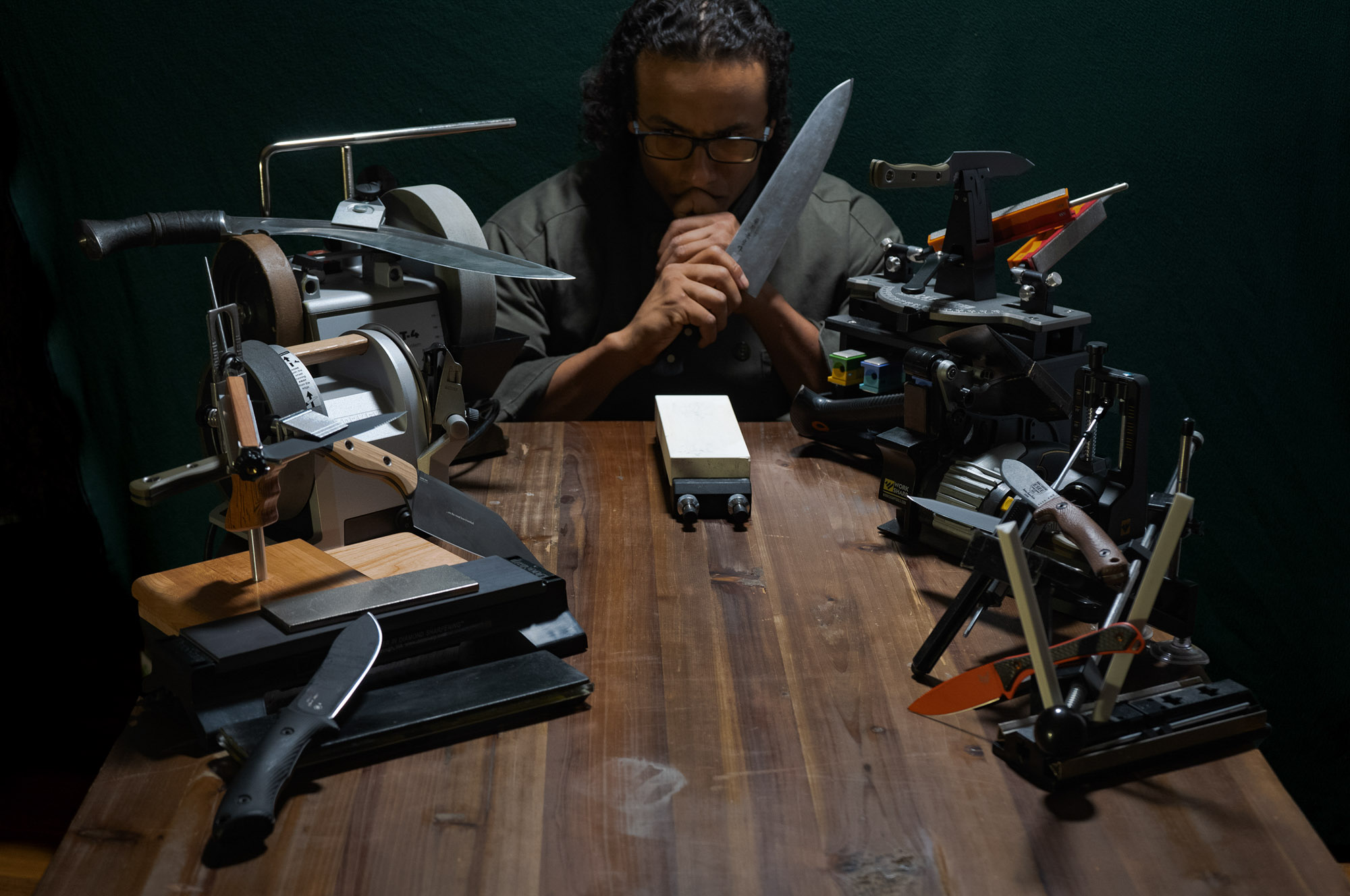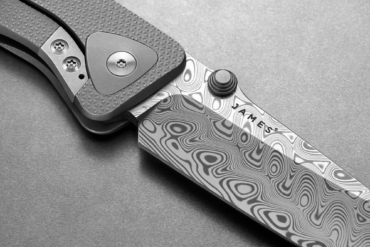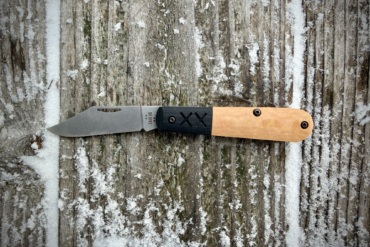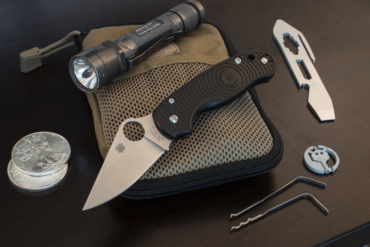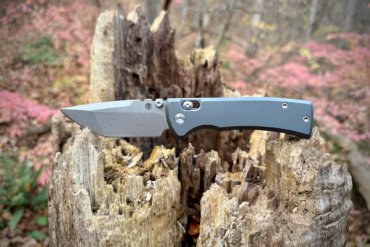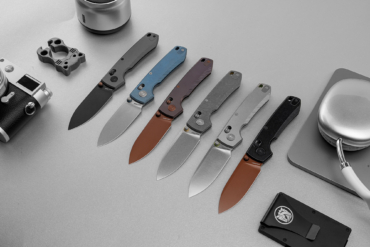There’s a reason why, even among heavy hitters, the Tormek T-4 was a favorite in our review of the best knife sharpeners. There are as many ways to sharpen an edge as there are ways to skin a cat, but few offer the combination of versatility, precision, and — oddly enough — ASMR as a Tormek.
The Tormek T-4 Bushcraft, specifically, offers one of the best compromises between speed, quiet, cleanliness, and fidelity on the market. Tormek also offers no shortage of jigs for every situation — with the bushcraft edition specifically including one for sharpening axes — making it particularly friendly for those who might lack a steady hand, but do have a bit of counter space.
The flip side of a system that has a perfect setup for nearly every blade: Complications come ample and included. Setup time and accessories cost extra. But when put to the test this summer against a fleet of aging wildland firefighting tools (and a not-small number of other blades), the T-4 was decidedly the tool for the job.
In short: For the vast majority of blades, the Tormek T-4 offers precision sharpening that’s faster, quieter, cheaper, and more consistent than the vast majority of manual and electric sharpeners alike. However, with a few newer sharpening systems offering just as much versatility for hundreds less, the T-4’s value ultimately comes down to how apt it is for the blades you have.
To see how the T-4 grinds with the best of them, check out GearJunkie’s Best Knife Sharpeners Buyer’s Guide.
- Sharpener Type: Electric, water-cooled grinder/rotary strop
- Angle Range: Nearly all of them
- Grits: 220 and leather honing wheel
- Size: 11 x 10.5 x 10.5”
- Best For: Pro-grade sharpening
- Skill Level: 5 out of 5
Pros
- Unmatched versatility
- Fast, professional sharpening and reprofiling
- Wide angle range
- Quiet and clean
Cons
- Large
- Expensive
- Relatively high skill level needed
- Not best for convex edges
Tormek T-4 Bushcraft Sharpener: Review
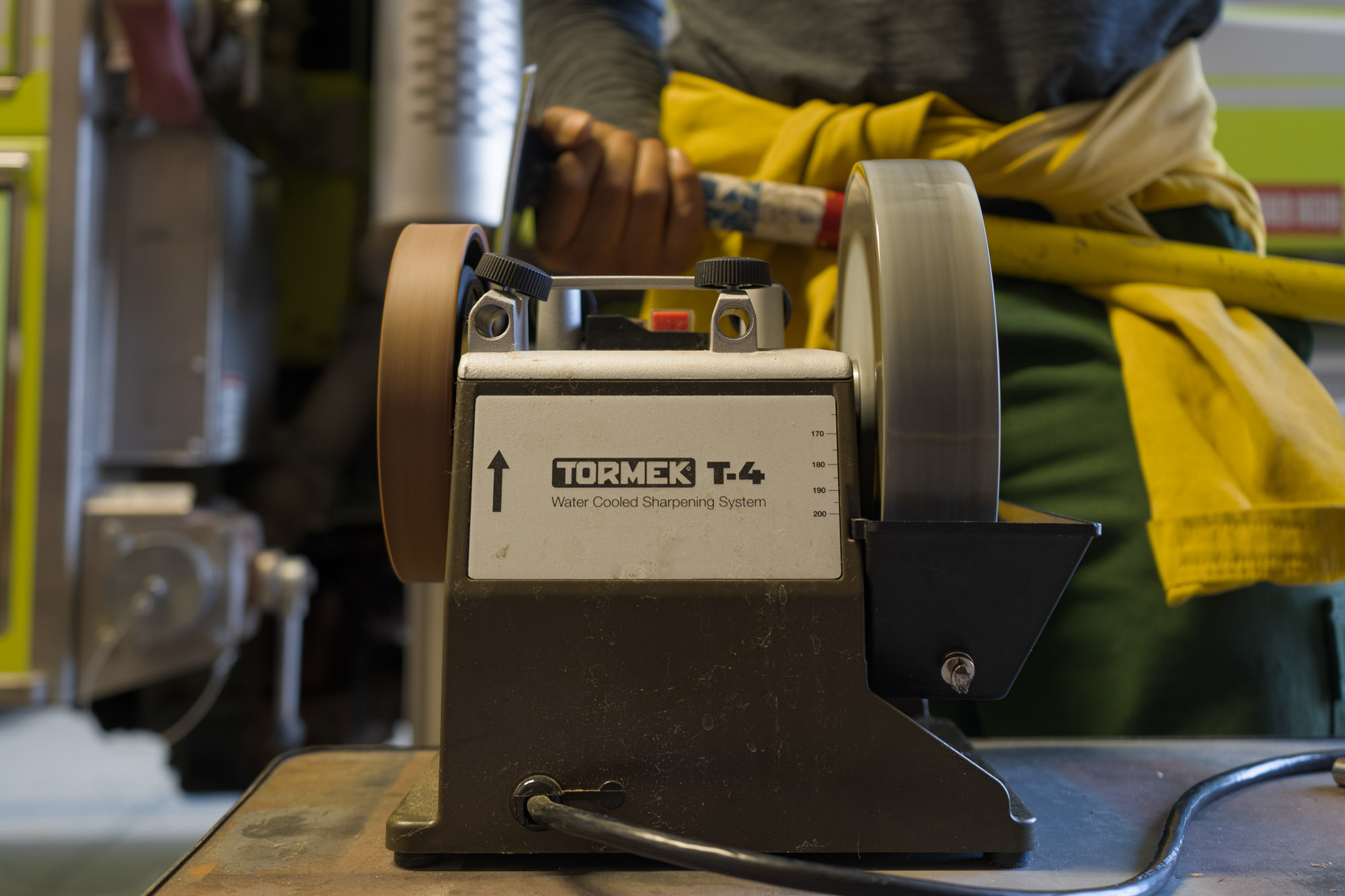
What Makes the T-4 Different?
Tormek is known for its water-cooled, electric, rotary whetstone systems. What does that mean? Contrast traditional bench grinders: They spin dry, coarse abrasives at high speed. This comes with plenty of downsides. They spit out metal dust and sparks, run loud, and don’t exactly lend themselves to a sharp edge.
Tormek’s stock-in-trade, instead, is the slow ride. Instead of high RPMs and coarse abrasives, Tormek’s leverage slow speed and harder, finer abrasives — typically whetstones or diamond-plated steel wheels.
Instead of kicking out sparks and swarf (steel particulates) being kicked out into the air, particulates get lapped up by the film of water covering the stone, and then deposited in the trough that the bottom third of the wheel sits in. Attach a magnet on either side of the trough, and that swarf becomes incredibly easy to collect and dump.
And while there’s a time, place, and capability for freehand sharpening, the selling point of a Tormek is the jigs. With a jig for securing and sharpening nearly every type of blade under the sun, you can dial in whatever angle you want to within fractions of a degree and get to work — at least, theoretically.
Crux, Concerns, and Calculations
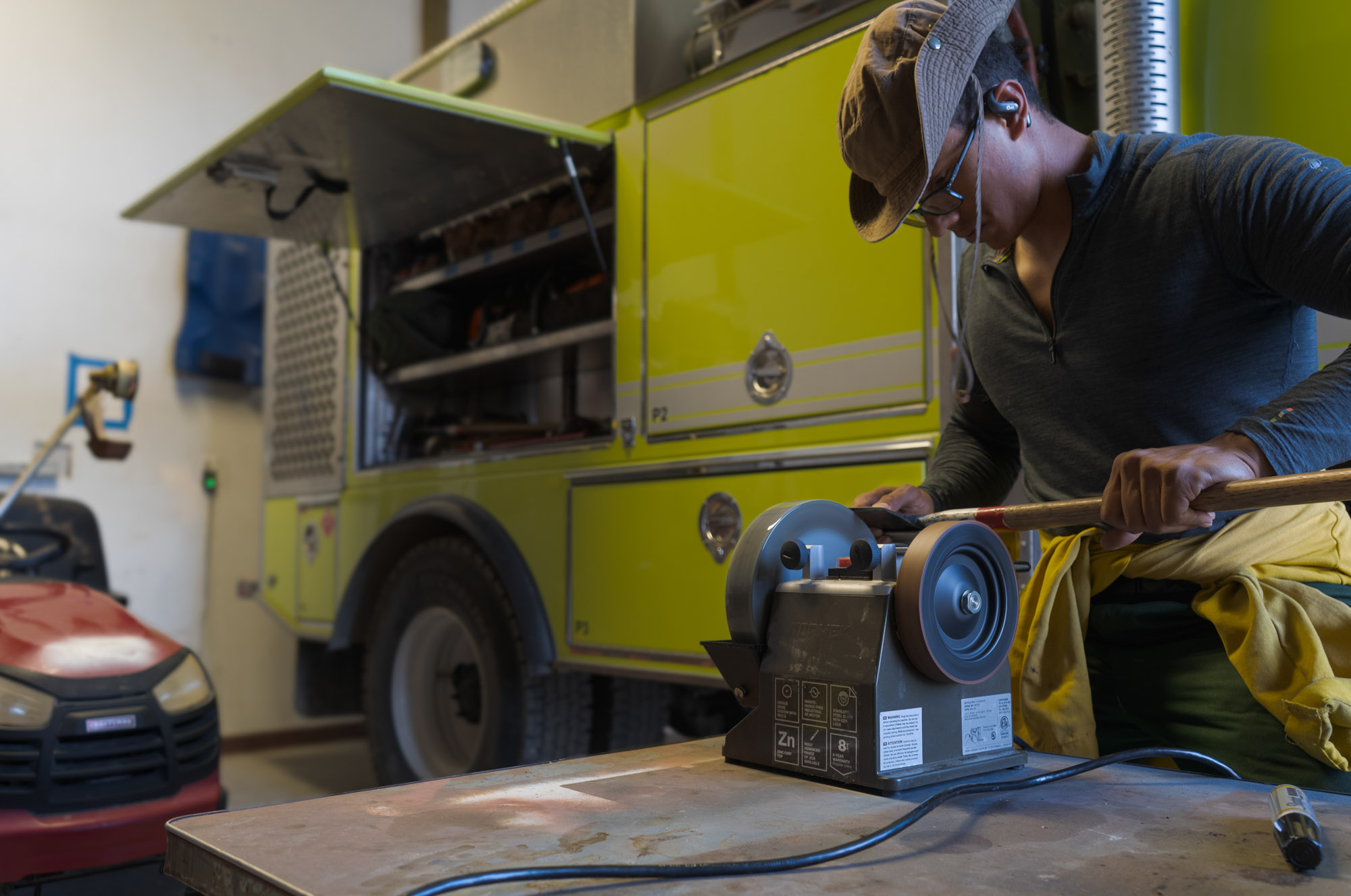
The Tormek T-4, with its 8-inch diameter wheel, is the middle ground between Tormek’s quick and easy kitchen sharpeners like the T-1 and the purely professional-grade 10-inch behemoth, the T-8. That doesn’t mean it comes without a steep learning curve.
The setup is multistep but straightforward for most blades — provided you have the workspace. Simply plug it in, load up whatever wheels you’re using, fill the trough, put your blade or tool in the right jig, set your angle, and get to grinding.
While matching the existing angle is simple enough, selecting a different one is where things get complex. Sharpening on a wheel, instead of a flat surface, does come with some peculiarities. The biggest one is figuring out what angle you’re grinding at.
Tormek does have tools that you can use to set the angle. However, it can be inconsistent, and I found it easier to take a measurement of how far the edge sticks out of the jig and plug it into an angle calculator.
Some people might worry that sharpening with a wheel gives you a weaker, concave edge. In practice, for the majority of blades, that’s a nonissue. On an 8-inch wheel, the degree of concavity on your average 2-3mm edge is around a hundredth of a millimeter. Simply put, it’s so small you’ll almost never notice.
Nose to the Grindstone
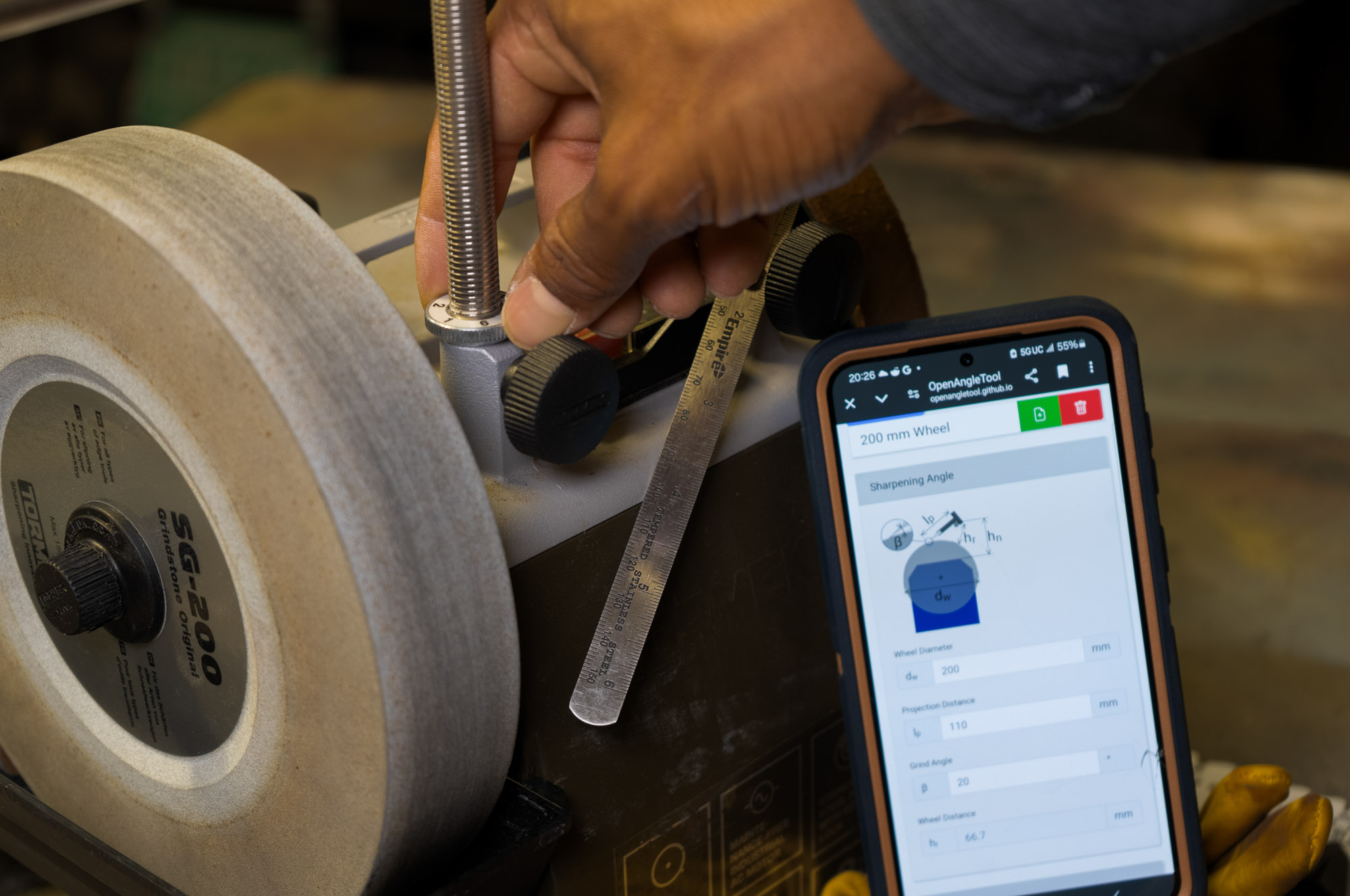
When I moved into the barracks of my new wildland firefighting station and was able to give the 30-odd abused knives in our kitchen the best edges they’d ever sported, the true efficiency of the T-4 was undeniable.
The satisfaction of nigh-on ASMR produced by the T-4, however, is harder to quantify — but damned satisfying. Ditto for not having to soak, clean, and relevel multiple whetstones or chew through multiple belts on my Work Sharp.
Hauling it to some of the bars, lounges, and kitchens I used to work at to sharpen their knives on site was a little less so. Granted, at the size of a shoebox and the weight of a watermelon, the T-4, while no great burden, is far from the most portable system in my shed.
It is, however, quieter, cleaner, and quicker than my alternatives. My Work Sharp Elite Knife Sharpening Solution: too loud and messy. Metal dust could easily contaminate food prep surfaces.
My Wicked Edge Gen 4: Nearly as large, but lacking speed, especially for long blades that would require readjustment in the vice. My Edge Pro Apex: Smaller, more convenient, but a touch slow for touching up a dozen knives before the kitchen opened.
With the vast majority of blades, the basic stock stone is a workhorse. Using the included grading stone, you can adjust it from 220 to 1,000 grit. Without swapping anything, I could take an edge from chipped to razor-sharp in minutes: Just affix the blade in the jig, set an angle, grade the stone, and start drawing the length of the blade along the stone.
Mo Problems, Mo Accessories
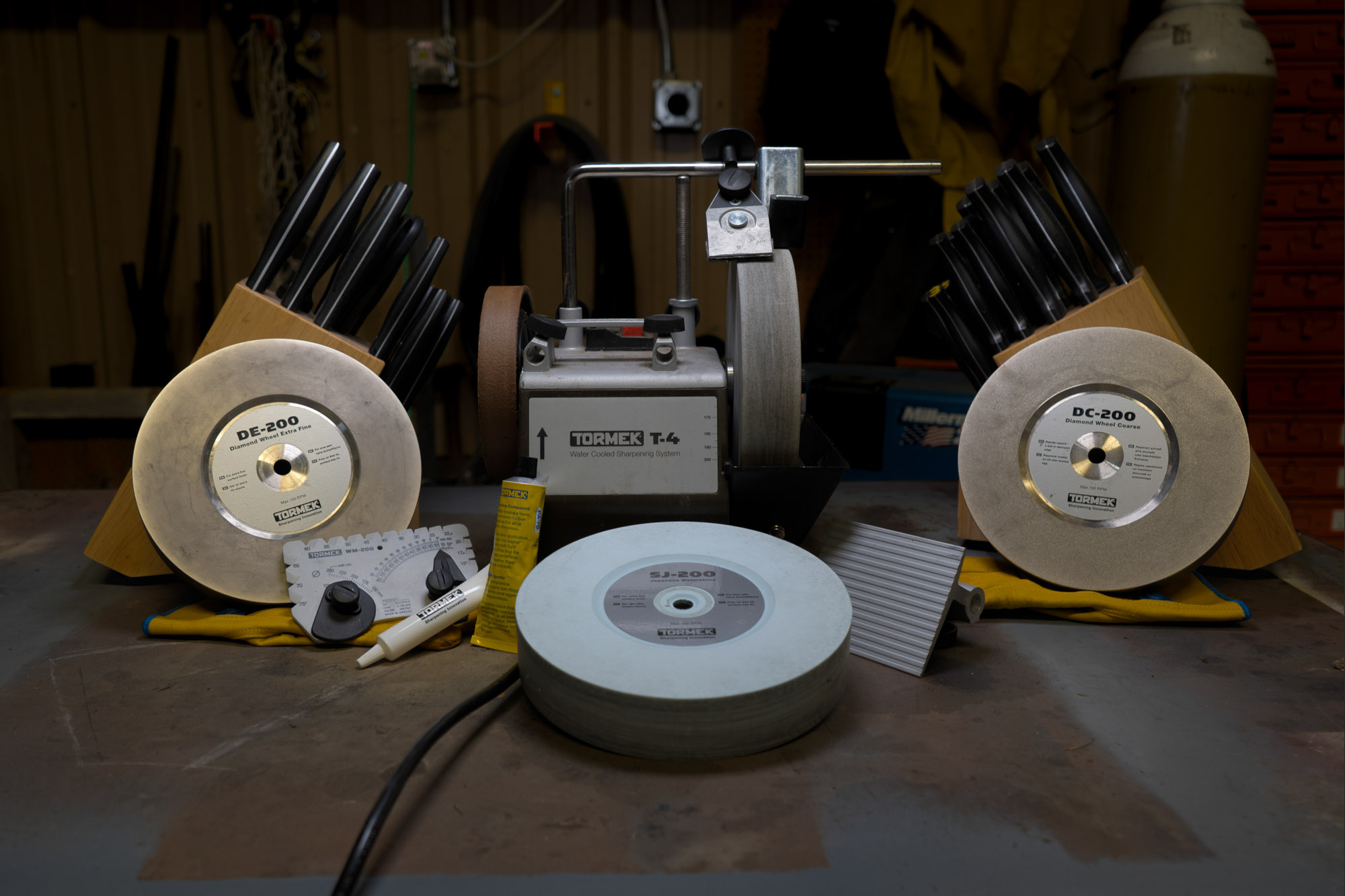
One wheel and $550 quickly turned into an over $1,600 ensemble, including two diamond wheels, two whetstone wheels, two extra accessories for the rail, and … let me explain. I don’t have a problem; I swear.
Tormek’s stock SG-200 Grindstone is a workhorse and still laps popular manual angle-guided sharpeners. However, it’s noticeably slower with the extremely hard steels found in many high-end pocketknives, such as S90V and M390.
For those looking for finer, mirror-polished edges, you’ll want the $250-330 SJ-200 Japanese Waterstone. The name might not be catchy, but the edges it grinds absolutely are.
Then there are diamond stones: They aren’t forever, but they do grind fast for quite a long time, without the wheel changing size. Even for someone sharpening a high volume of kitchen or average pocketknives, the Fine or Extra Fine wheels alone are enough. However, for those who also sharpen a lot of hard steel, or repair badly damaged edges (lawnmower blades, abused axes, etc.), the Coarse wheel becomes a necessity.
Throw in an MB-102 Multi Base, and you’ll also be able to grind on the side of the diamond wheel. For edges with a high grind, such as chisels, single-bevel, and asymmetrically ground Japanese cutlery, this is a boon. It provides a wider contact area and ensures a perfectly flat edge. Add the Tool Rest, and freehanding tools like double-bit axes or convex edges in general becomes easier too.
Will the average edge obsessive need to drop a grand and a half to turn an efficient sharper into a whole 40-pound-plus workstation? Not at all. Would I need to? Two words: Business. Expense.
The Hit List — Blades That Struggled
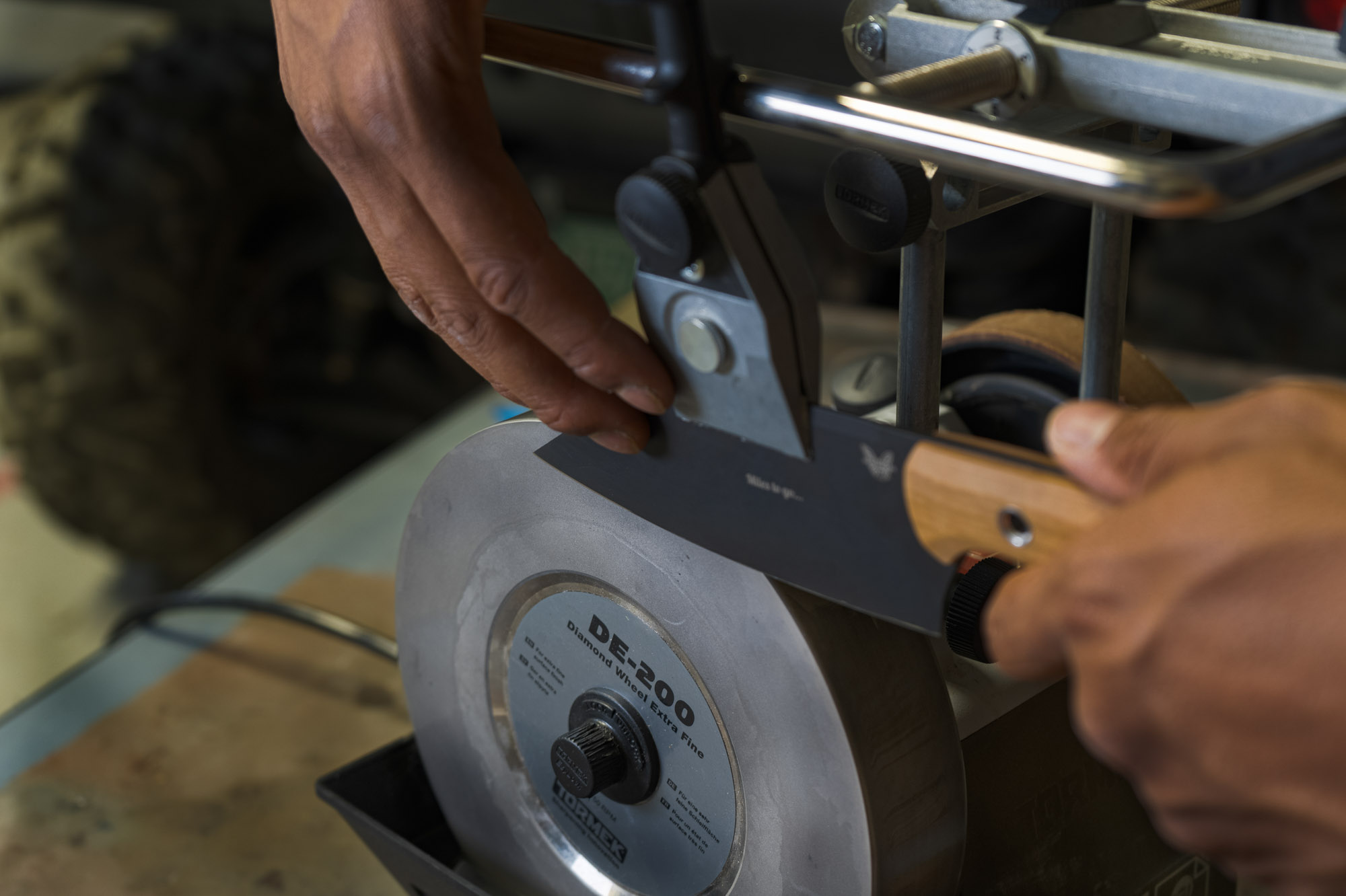
The T-4 can sharpen dozens of knives of a wider variety of shapes, sizes, and edge angles more quickly than most manual sharpeners. It’ll grind a sharper edge more taciturnly and mess-free than nearly any other powered sharpener that doesn’t have “Tormek” in the name. That said, every sharpening system has a subset of blades it doesn’t play as well with.
- Japanese cutlery: The T-4 puts fantastic edges on Japanese cutlery, but it forces a choice. Most Japanese cutlery is either single bevel (ground on one side) or asymmetrically ground (at different angles on different sides). With these acute, high-on-one-side grinds, matching the angle produced a weaker, noticeably concave edge. There’s an easy workaround: Put a slightly steeper “microbevel” at the very apex of the edge. I did this with my favorite gyuto, and it’s never cut better.
- Curvy, flat, and convex: This is one the T-4 has in common with most manual clamping sharpeners. It can handle long, curvy blades, but it’s not ideal. On long, upswept blades, I often had to reposition the clamp to hit the full curve. Khukuris, a personal favorite blade style of mine, was a nightmare — combining the experience of grinding a convex edge on a tool that wants to produce concave ones along a long, recurved blade.
- Hairdressing equipment: I practically live outdoors — with unruly melanated hair. So, trading cuts for sharpening is par for the course. Even so, the T-4 wouldn’t be my first pick for hairdressing equipment. True, you can hold the head of clippers against the side of Tormek’s Extra Fine Diamond Wheel to touch them up, but it’s awkward and unideal. Ditto for shears.
Cutting Conclusions: Tormek T-4 Bushcraft Sharpener

In a market absolutely loaded with expensive sharpening systems, the questions to ask always boil down to, “Who is this for?” and “How good is the value?”
Simple: Do you want or need a precise, versatile workhorse for sharpening equipment — but sharpening equipment isn’t so much your “main thing” that you need to devote several grand and an entire bench to a consummately professional beast like the T-8 … this sharpener is probably for you.
There are many sharpening systems in the T-4’s $500-600 price bracket. Few manual ones could sharpen as many knives as fast and efficiently as the T-4. Few powered ones could do so as quietly, without spewing dust and sparks.
For the cook sharpening a bunch of knives in a commercial kitchen before opening, the person sharpening blades at the farmers market, and the landscaper who wants to touch up their mower blades and shears themselves, the T-4 is fantastic out of the box.
Woodworkers, Japanese cutlery aficionados, restorationists, and those who sharpen in bulk — especially high-hardness steels or badly damaged edges — would benefit from grabbing a diamond wheel or two. The perfectionist will absolutely want the 4,000-grit waterstone.
The accessories add up quickly. Even so, the T-4 does a lot to justify its price with a combination of beastly performance, decent portability, excellent cleanliness, fantastic build and edge quality, and — perhaps this is just me — a sound that is music to my ears.
